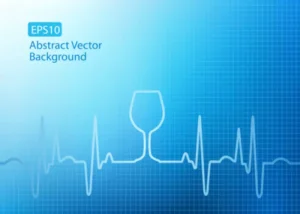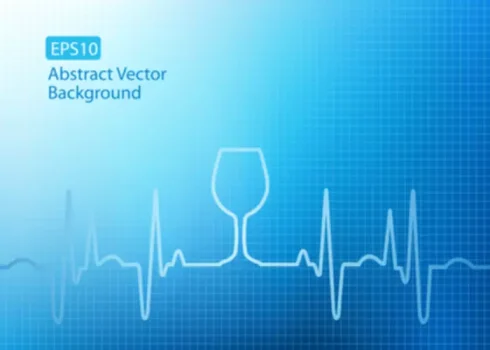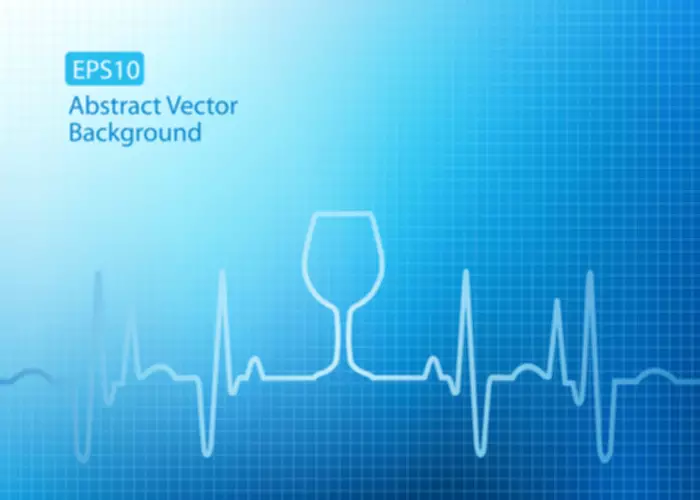
A better understanding of the relationship between mental health and substance use is vital in developing effective treatment strategies for those afflicted. Data was used from the 2017 Drinkaware Monitor survey, which investigated drinking behaviours, occasions and motivations, harmful drinking behaviours, and moderation techniques across the UK 27. The survey was conducted on behalf of Drinkaware by YouGov, a market research and data analytics firm.
Common Co-occurring Mental Illnesses with Alcoholism
- Discover the effects of alcohol on blood pressure, from short-term impacts to long-term risks.
- Treatment should consider the interplay between these conditions, aiming to simultaneously address both the alcoholism and the underlying mental health concerns.
- Discover how to overcome burnout after you’ve burnt out, from recognizing symptoms to strategies for recovery.
- Although there is still some debate regarding the relationship between alcohol use disorders and depression, there is undoubtedly a correlation between the two.
- As mental health worsens, a person is likely to use more and more alcohol to cope, thus falling further into addiction.
“Acute medical wards are important places for caring for young people with mental health concerns – especially those with co-existing physical health problems like starvation from an eating disorder. For example, people who have at least six drinks a day account for about half of alcohol-related cancer cases globally despite representing a small fraction of the overall Alcoholics Anonymous population—1 to 2 percent of women and 10 to 20 percent of men in the U.S., for example. A number of experts have recommended revision of the guidelines toward lower amounts, as more studies have linked even moderate alcohol consumption to health risks. Predictably, the alcoholic beverage industry opposes more restrictive guidelines.
Long-term cognitive decline due to substance abuse
Its purpose is to educate, support, and empower people in their pursuit of well-being. The prevalence of AUD in people with schizophrenia is around 11%, with a lifetime prevalence of 21%. PTSD is a condition that involves long-term effects, such as anxiety, flashbacks, and trouble sleeping, following a traumatic event.
- Well, alcohol causes feelings of relaxation, which are provoked by chemical changes to neurons in the brain.
- When psychosis is suspected, a general physical and neurological exam should be performed to exclude medical causes such as subdural hematoma, seizures, or hepatic encephalopathy—any of which may be a consequence of AUD.
- Treatment for co-occurring disorders typically involves a combination of therapies, such as individual counseling, group therapy, medication management, and support groups.
- PTSD is characterized primarily by alterations in arousal and recurrent intrusive thoughts that follow a traumatic event.
- This review also did not include post‐traumatic stress disorder (PTSD), despite its inclusion as a CMD in UK health guidelines 32.
How New Jersey Rehab Centers Support Long-Term Recovery
It also helps uncover automatic negative thoughts and beliefs that lead you to self-destructive behaviors or emotional distress. The American Psychiatric Association identified substance use disorders as primary mental health conditions in 1980. It is classified as a mental health disorder in the Diagnostic and Statistical Manual of Mental Disorders (DSM-5). This is the standard reference used by mental health professionals to diagnose mental health conditions. Cognitive behavioural therapy (CBT) was reported as an effective psychosocial intervention in treating at least one aspect of comorbid problematic alcohol use and psychiatric conditions (Toneatto & Calderwood, 2015; Morely et al., 2016; Brown et al., 2011).
This holistic approach to treatment and recovery enhances the chances of long-term https://ecosoberhouse.com/ sobriety and improved overall well-being. It is crucial for healthcare providers to screen for and identify co-occurring disorders when assessing individuals with alcoholism. Proper diagnosis and understanding of the co-occurring conditions can guide treatment decisions, help tailor interventions to the individual’s specific needs, and improve overall treatment outcomes. Treating co-occurring disorders requires an integrated and comprehensive approach that addresses both the alcoholism and the mental health conditions simultaneously.
This study has examined whether harmful drinking is significantly related to low mental well-being and investigated the relationship between harmful drinking, mental well-being, and drinking motivation within the UK population. The results are in line with the wider literature, finding low risk drinkers are significantly more likely to have higher well-being than those who drink at hazardous, harmful, and probable dependence levels. The AUDIT tool was developed by the World Health Organization 28, with the purpose of screening for an individual’s level of risk and/or harm in relation to their alcohol consumption patterns. It is a useful tool in identifying some specific consequences of harmful drinking and dependence on alcohol. The test contains 10 questions, each of which is scored between 0–4, where 0 indicates “never” or “no” and 4 represents an increased likelihood of risky drinking.

This may involve a combination of therapy, medications, support groups, and lifestyle changes tailored to your specific needs. There are many risk factors and components to consider, but none more so than mental illness. According to research from the National Alliance on Mental Illness, around 1 in 5 (20%) of U.S. adults experience mental illness each year. There is a close connection between alcoholism and mental illness for some people. While alcohol initially seemed to help, it soon contributed to increased anxiety and disrupted sleep patterns, worsening her PTSD symptoms.


Ultimately, addressing stigma and misconceptions surrounding alcoholism as a mental illness requires a collective effort from society, including individuals, communities, healthcare professionals, and policymakers. By promoting education, empathy, support, and responsible media representation, we can work towards creating a more inclusive and understanding society that supports individuals with alcoholism in their journey towards recovery. By understanding mental illness and recognizing its impact on individuals’ lives, we can work towards creating a more inclusive and supportive society. Promoting mental health, raising awareness, and advocating for effective treatments and support systems are essential steps in addressing the challenges faced by individuals living with mental illness. Alcoholism, or alcohol use disorder (AUD), is a chronic condition characterized by a compulsive and unhealthy pattern of alcohol consumption.

Links to NCBI Databases
The simultaneous presence of mental illness and alcoholism creates a compounded challenge for individuals, often exacerbating the symptoms and severity of both conditions. This co-occurrence can lead to a more severe course of illness, with increased risk of chronicity, relapse, and poor treatment outcomes. The combination can also hinder an individual’s ability to function in daily life, affecting relationships, employment, and overall quality of life. It’s important to note that alcoholism is not merely a lack of willpower or moral failing; it is a complex mental illness with psychological, genetic, and environmental factors.
Covid’s Impact on Personality and Resilience Revealed
Let us embark on this exploration to gain a deeper insight into the complex nature of alcoholism and its relationship is alcoholism a mental illness with mental health. Other psychological models suggest that comorbid alcohol and mental health problems are due to shared vulnerabilities, such as SES factors 23, 48, 49, 50. John, a 45-year-old man, has been struggling with depression for several years. Over time, his alcohol consumption increased, as he found it numbed his feelings of sadness and hopelessness.
Leave a Reply